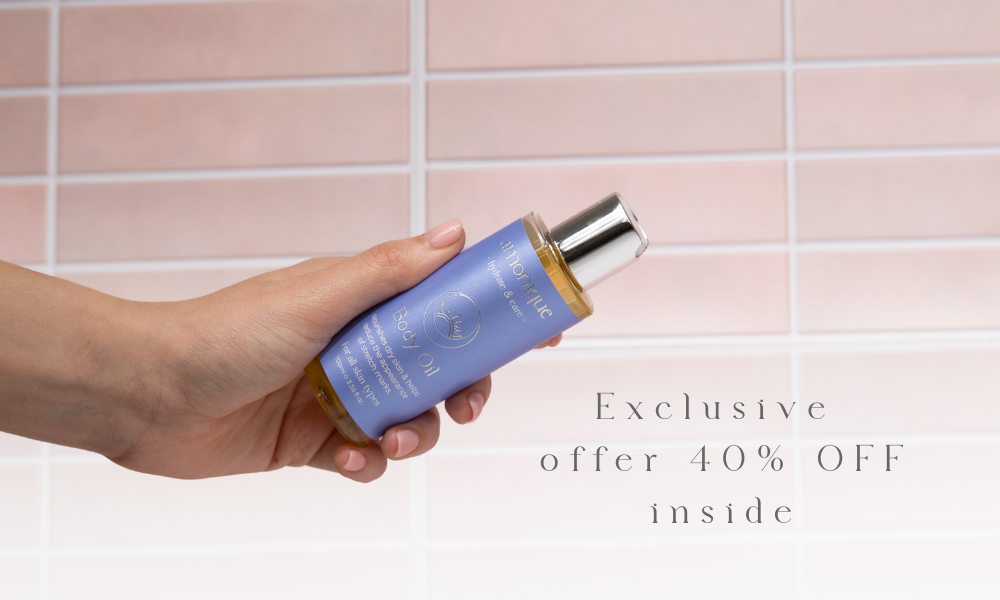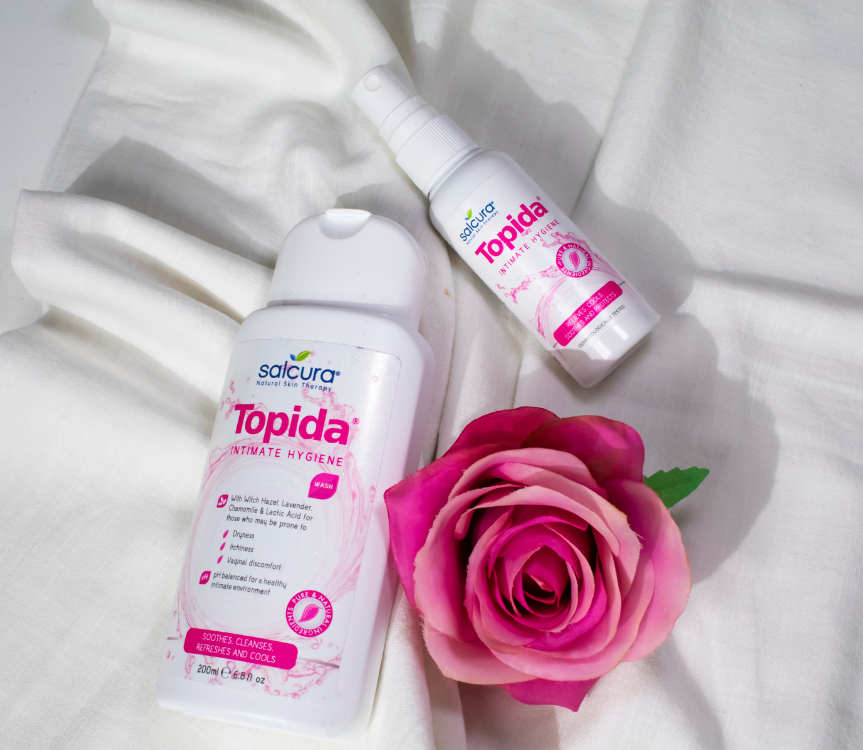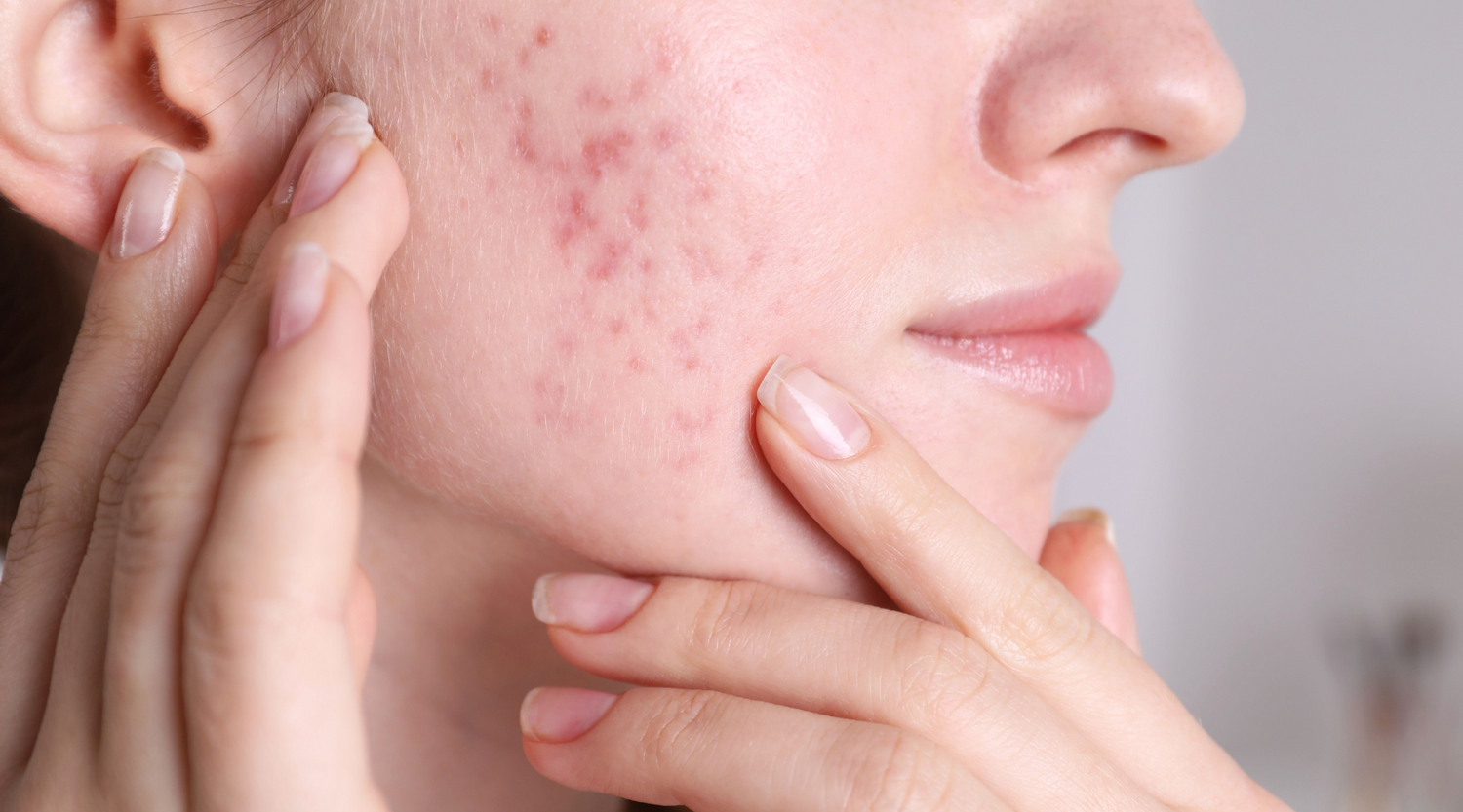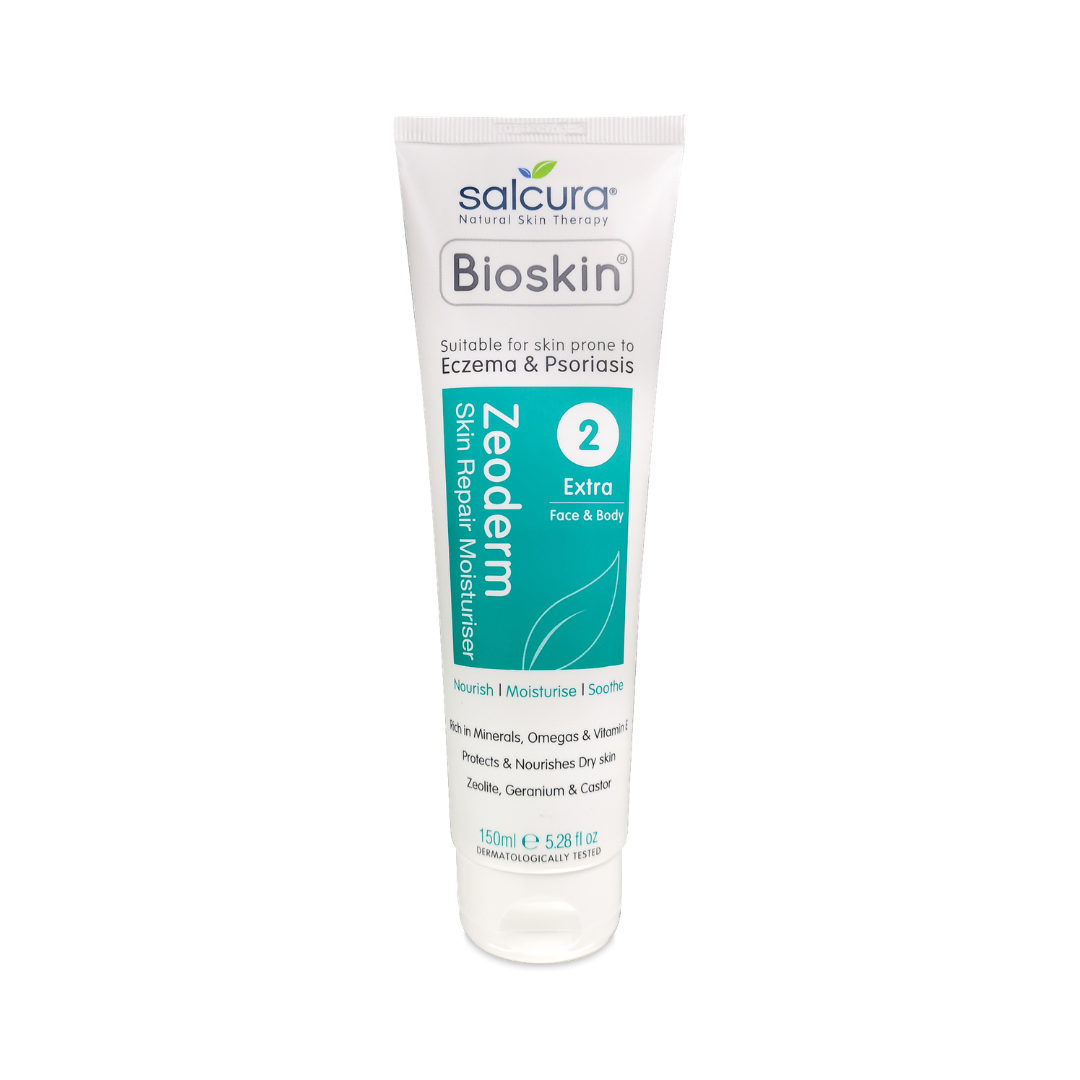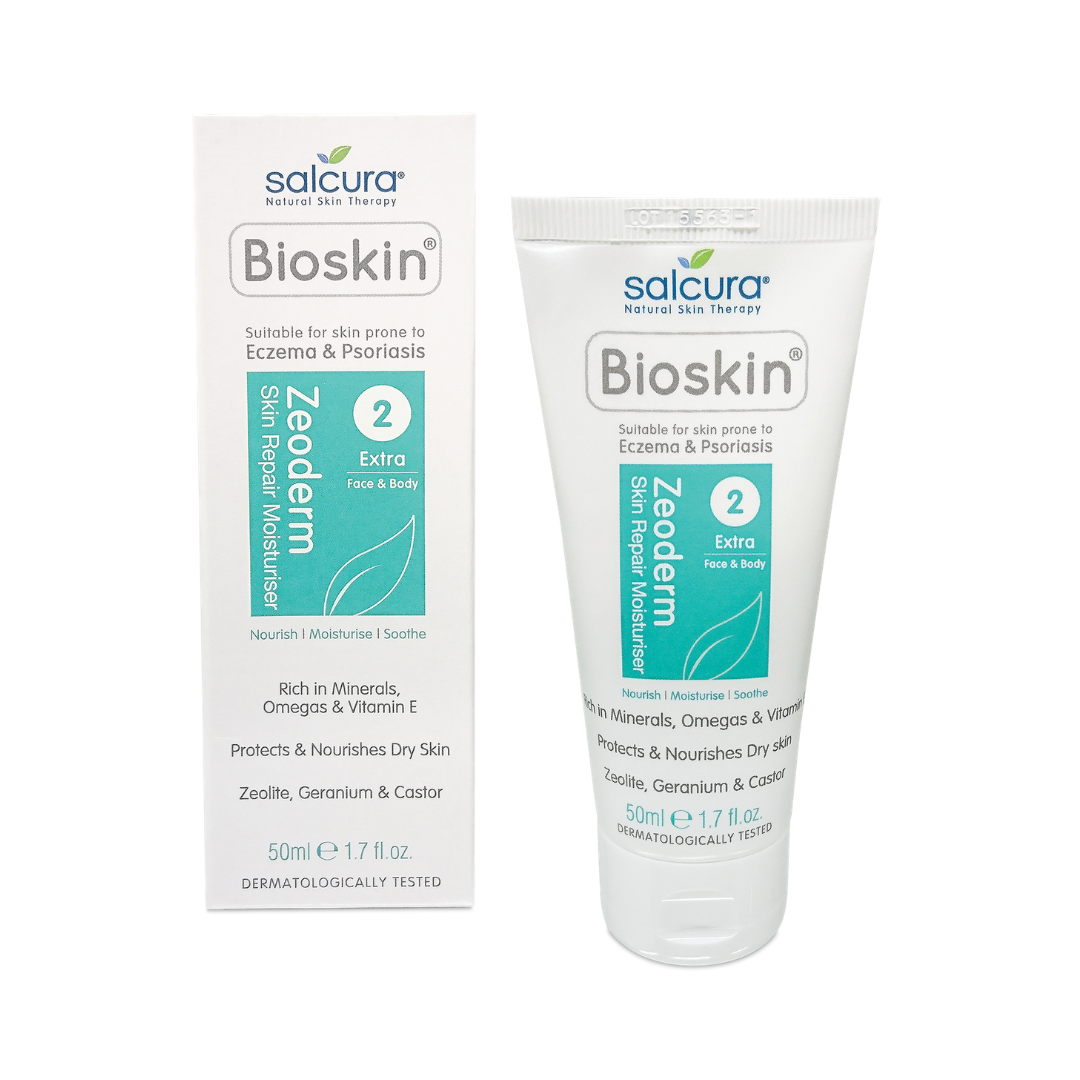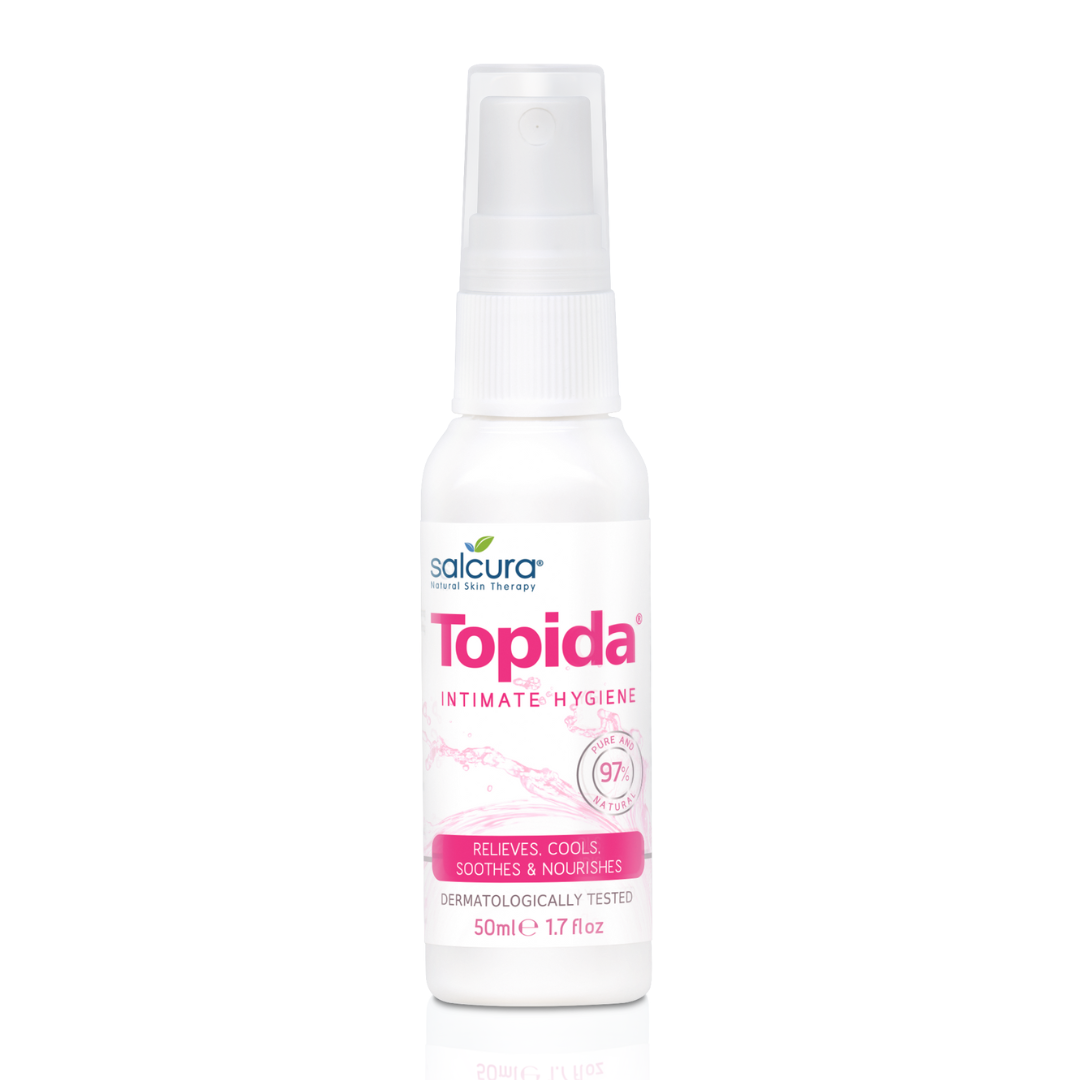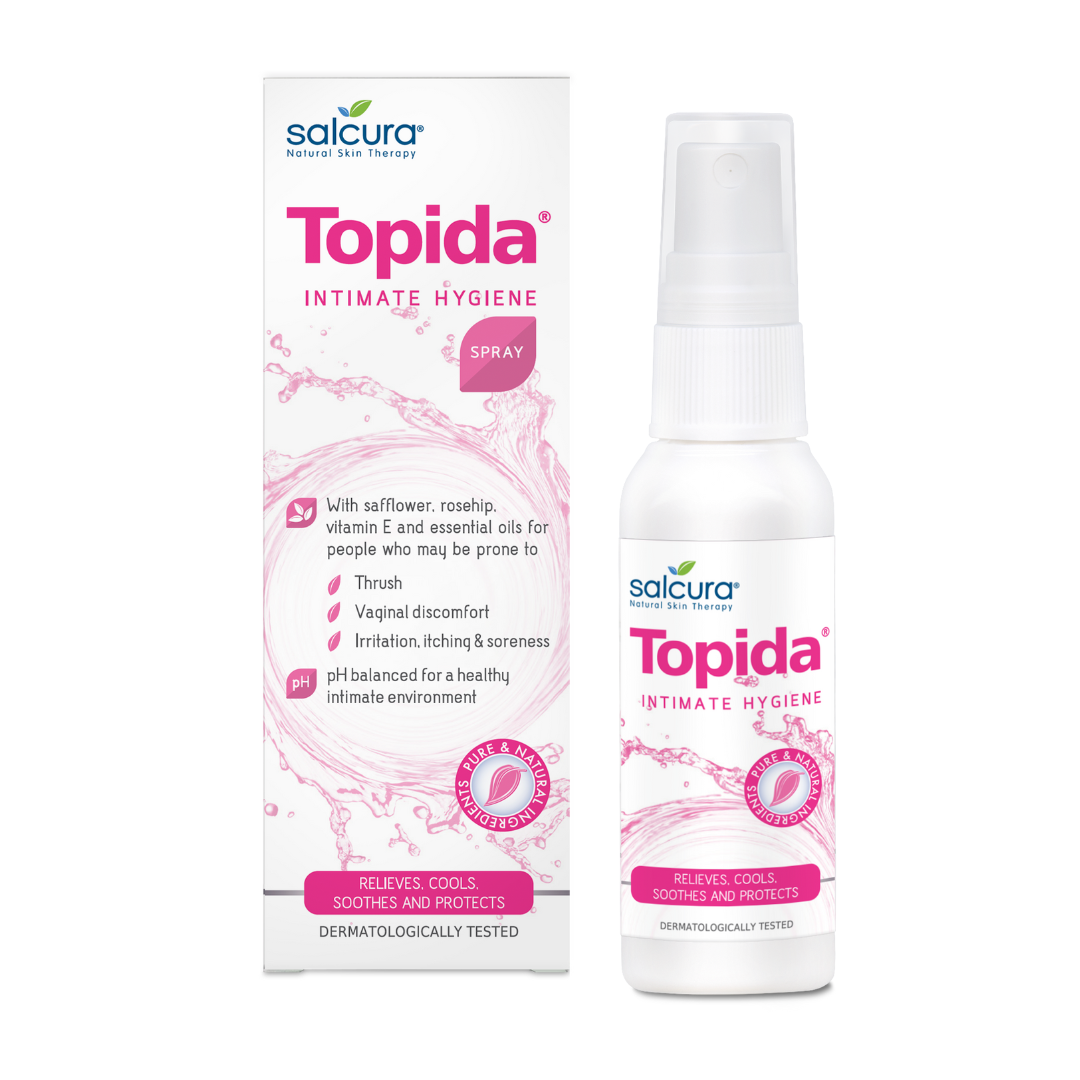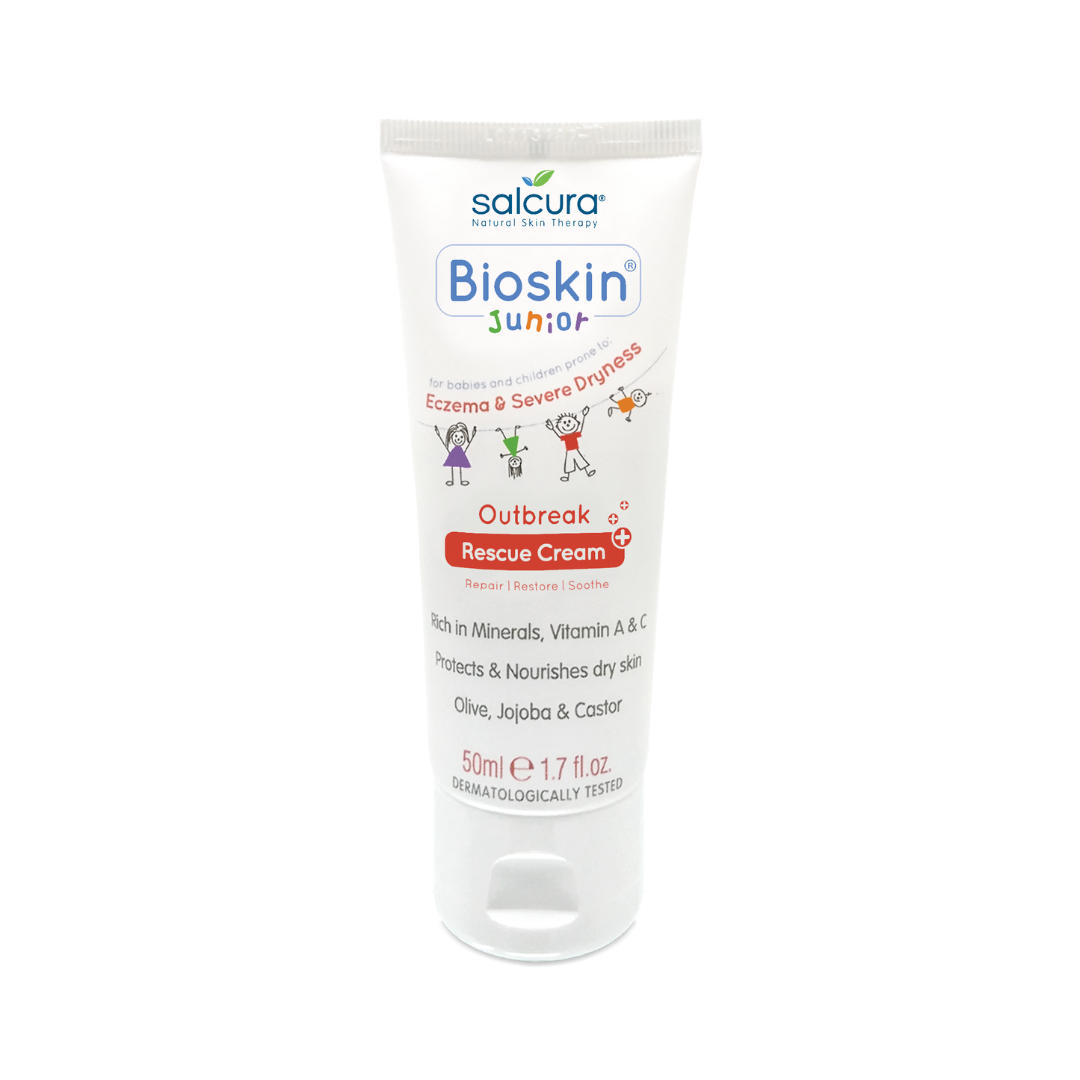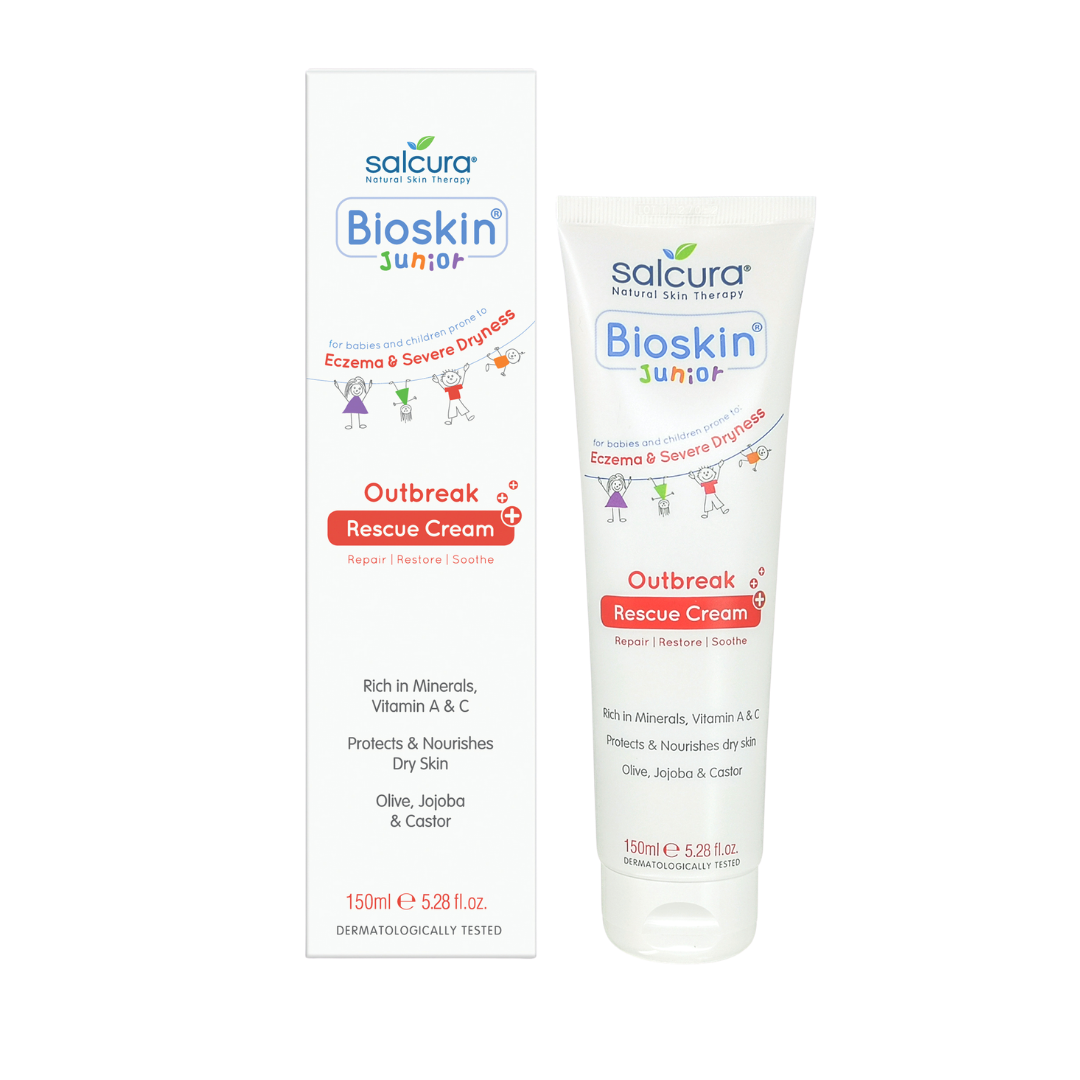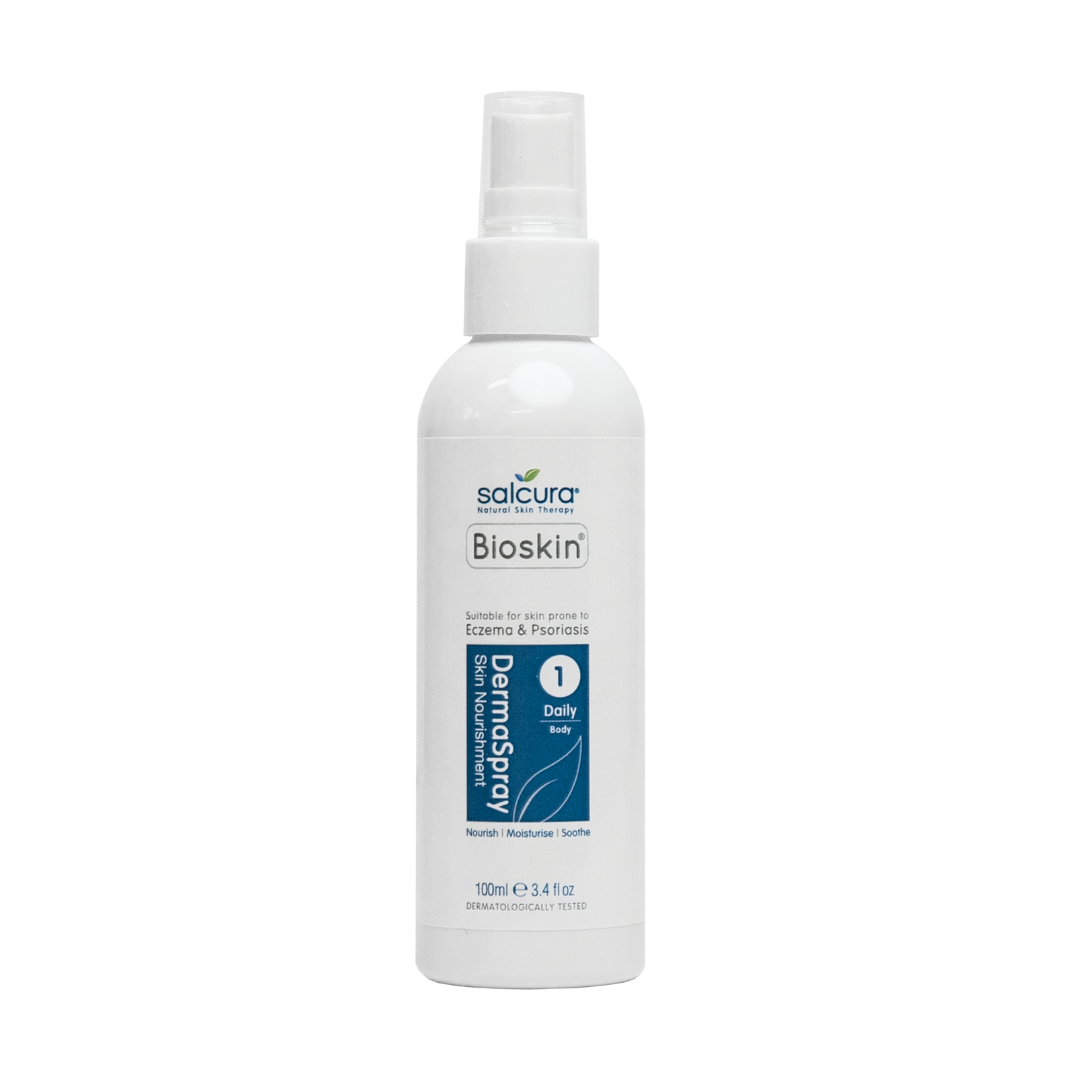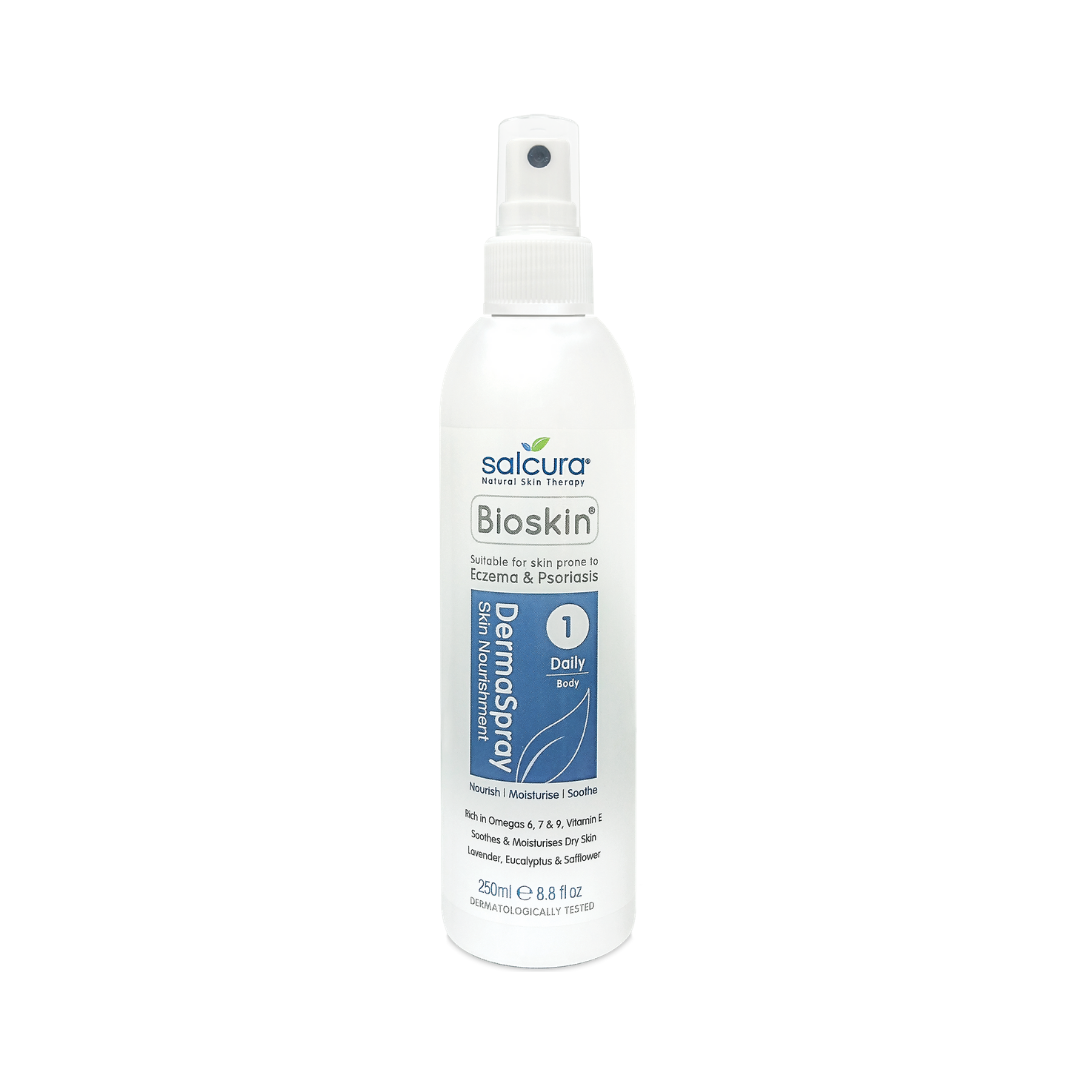It is to be expected that babies and children with eczema-prone and dry skin can be irritable and grumpy, as they are battling with a difficult combination of itchy, painful skin and often a lack of sleep. In this article, we share basic and practical advice on what you can do as a parent to get your happy, cheerful child back. This National Eczema Week we are raising awareness for eczema and this blog will provide some useful tips for parents whose kids are suffering.
Give your child the feeling of control
Child-rearing can be intense; being the parent of a kid with a constant skin condition can be even more difficult. The home turns into a fighting ground with everyday battles about getting dressed, applying cream, sleep time... the list goes on!
Including your child in their skincare routine can help - here's the secret:
- If your child can communicate, find out if their refusal to apply cream is because it stings or is too hot or cold. Try a gentler product, warm the cream in your hands or cool it in the fridge.
- Instead of telling your child “Put your clothes on now” or “It’s time to put your cream on,” say “Do you want to put your socks or vest on first?” or “Would you like cream on your arm or leg first?” This leaves no question that the cream is going on but gives your child a sense of control.
- Decant the cream into smaller, sterilised containers that your child has decorated with stickers. Allow them to choose which pot to use. You can also name the cream after your child’s favourite cartoon or television character.
- Remember, communication is a two-way street and only 7% is verbal - think about the tone of your voice and body language too. If you’re tense, your child will pick up on it.
Make your home eczema-safe
You’ve probably already made a number of eczema-reducing changes to your home environment, but here’s a quick checklist:
- Remove as much allergy and skin aggravating dust from your home by damp dusting, using a vacuum cleaner with a HEPA filter and washing soft toys weekly.
- Use anti-allergy bedding & cotton sheets.
- A cool mist humidifier in your child’s bedroom can counteract heat and dryness.
- Use non-biological washing powder or liquid and rinse clothes well.
- Regular synthetic compounds in the home might be setting off your child’s flare ups - cut down on harsh cleaning products by making your own.
Out and about
You have some control over limiting triggers inside the home, but what about when your child is out and about? Here are some common issues and solutions to consider:
Summer and hay fever season
Dry skin can erupt in the summer and in hay fever season, but with some restraint increased sun exposure can actually be recuperating for the skin. Studies show that children living in low daylight territories suffer more from eczema and hypersensitivities, so get your kid outside to absorb some vitamin D! In the event that your child’s dry skin erupts during hay fever season, we recommend looking at treatments that coat the inside of the nostrils to reduce the amount of allergens breathed in.
Dressing your child in light, natural fabrics such as cotton, hemp and bamboo will keep them cool and dry. Bamboo is particularly great as it has an antibacterial quality to it; a magnificent decision if your little one has eczema-prone skin.
Car journeys
Sitting in a car seat for a significant stretch of time can make your little one hot and sweaty; the ideal formula for an eczema outbreak. Take a stab at dressing your child for the car journey as opposed to the destination, in the textiles referenced previously. Make sure to utilize sunlight shades in the windows and take regular breaks to cool and re-hydrate.
Swimming
Chlorine in pools can either trigger eczema, or now and again improve it by eliminating bacteria from the skin. Try looking for an ozone filtered or saltwater pool in your area to check whether chlorine free pools work better for your kid.
If your child does react to chlorine, try to create a barrier between your child and the substance. Apply a thick layer of cream before going in the water or invest in an all in one suit.
After swimming, wash off the chlorine in the shower and moisturise well. Keep your little one's hands occupied by treating them to their preferred snack and re-hydrate to replace fluids lost from warmth and effort.
Heal the skin from inside out
Add the appropriate nourishment's to your child’s diet to support their skin health and boost their immune system. In case you are breastfeeding, including these nutrients in your own diet will help your infant as well!
Brightly coloured fruits & vegetables - packed with vitamins, minerals and antioxidants that work to repair damaged skin cells and build stronger, healthier cells.
Wholegrains - try alternating grains; quinoa, oat or buckwheat pancakes for breakfast, corn/millet pasta for lunch and brown rice for supper. These gluten-free grains are excellent sources of skin-building B-vitamins.
Oily fish - such as salmon, mackerel, sardines, and trout are rich in anti-inflammatory omega-3 fats that moisturise the skin from the inside and can help combat itchiness.
Organic yoghurt - full of probiotics or ‘friendly bacteria’ that support digestive function and regulate the immune system.
Quercetin rich foods - this plant compound combats itchiness with its natural anti-inflammatory and antihistamine effects. Good sources include apples, red onions, red grapes, raspberries, cranberries & blueberries.
Water - if you struggle to get your kids to drink enough water, remember that water rich foods count too; include plenty of iceberg lettuce, cucumber, watermelon, and tomatoes.
Set aside a few minutes for yourself
Eczema is a condition that can genuinely influence your child's quality of life, and that of the rest of the family too. Research suggests that mothers of children with moderate to severe eczema experience similar degrees of worry as moms of children with serious formative and physical issues.
Feelings of guilt, anger and frustration are normal. It’s important to remember that you’re not alone! Make sure you have support from people who take your child’s condition seriously. Is there another parent of a child with eczema at your kid’s school who you could meet to share advice or simply vent? Online discussions can also be a useful source of support for some. Make time to do whatever it is that causes you to unwind, whether that is yoga, contemplation, tuning into music or watching your preferred show when the children are sleeping.
When times are hard, take a deep breath and focus on getting through one day at a time. Often the best thing you can do is snuggle with your child on the sofa; cuddles reduce the stress hormone cortisol and increase the immune boosting and bonding hormone oxytocin.
The good news is that by making these small changes, you can improve the health and happiness of the whole family.


